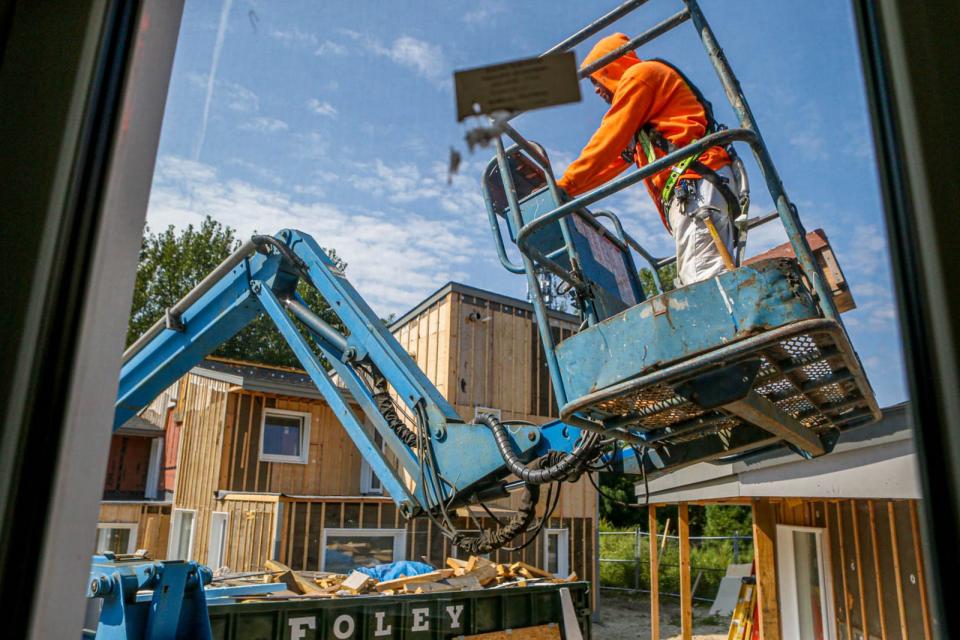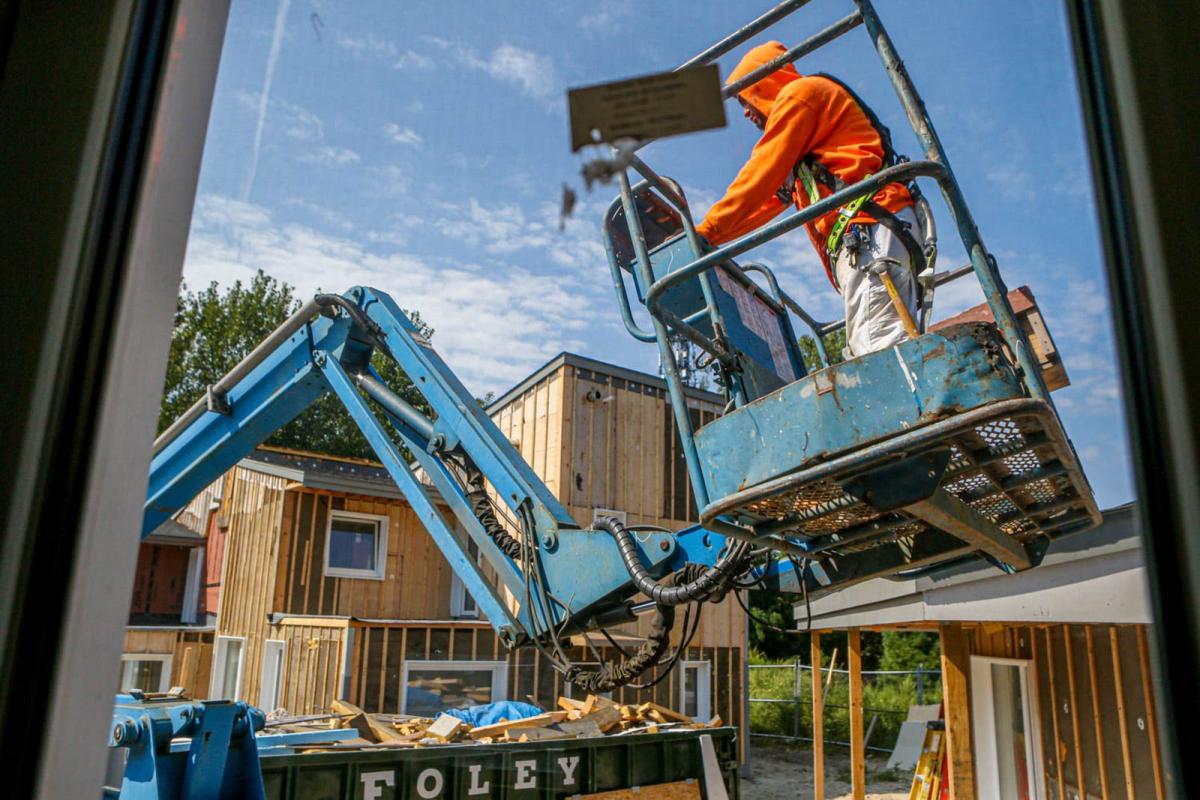“It wasn’t that long ago when people in this state and this country said that the one role government has in public housing is to do nothing and get out of the way,” Patrick Crowley, secretary-treasurer of the Rhode Island AFL-CIO, said at a Thursday press conference. “How’s that worked out for us? It hasn’t. Working people are starving for housing.”
Also joining him to express support for the legislative package being pushed by progressive group Reclaim Rhode Island were representatives of SEIU 1199 New England, the Rhode Island Building & Construction Trades Council, and International Union of Painters and Allied Trades District Council 11.
“The housing system is broken,” said Justin Kelley of IUPAT and the trades council. “If it was going to be fixed by now, with the tools that we have, it would have been done.”
The goal: Housing that workers can afford to live in
For several years now, Reclaim has been campaigning to make Rhode Island the first state to fully embrace the “public developer” model used in Montgomery County, Maryland. Under that approach, public housing authorities build new, mixed-income developments where market rate rentals subsidize affordable units.
Labor leaders who support the proposal said on Thursday that it would not only be a reliable source of union jobs, but also help to ensure that their members have stable, reasonably-priced housing.
“We’re going to make sure that workers who build this housing can afford to actually live in the house that they’ve built,” Crowley said. “Why is that such an unusual idea?”

S 2868, introduced by Sen. Jake Bissaillon, D-Providence, and H 7923, introduced by Rep. June Speakman, D-Warren, would create a $50 million revolving fund to finance those projects.
Another set of bills, S 2760, introduced by Sen. Meghan Kallman, D-Pawtucket, and H 7922, introduced by Speakman, would create a land bank.
Public housing authorities, nonprofits, and the state could use properties owned by the land bank to develop housing. Its creation would allow the state to “be nimble and act quickly on properties that are available to us,” Kallman said.
More: Political Scene: How a Maryland public housing program could influence Rhode Island
Taxing house flippers so communities don’t ‘lose their souls’
A new component of Reclaim’s “housing justice” package involves cracking down on house flippers and real estate speculators.
Under S 2347, homes that are bought and sold within less than six years would be subject to a new capital gains tax. It would be calculated on a graduated scale that reflects both the amount that the seller earned on their investment, and how long they owned the home.
Depending on the circumstances, the tax rate could be as little as 5% or as much as 80%. Certain transactions would be be exempt, such as when nonprofit development corporations sell properties.
The bill is sponsored by Sen. Dawn Euer, a Democrat who represents Newport and characterized the city’s overheated real estate as a canary in the coal mine for the rest of Rhode Island.
“The reality is that property speculators are gambling on their future at the cost of everyone else,” she said. “Those property flippers drive up the cost of property for everyone in the community. And when we start losing year-round residents, turning everything over to investment properties, communities lose their souls. We lose volunteers in schools, we lose the people that run the PTA.”
While people sometimes perceive Newport as one of the wealthiest communities in the state, she noted, the reality is that it’s also home to some of the poorest residents of the state — and a middle class “that’s being squeezed out.”
A companion bill will be introduced in the House by Rep. June Speakman, D-Warren, according to Reclaim Rhode Island.
This article originally appeared on The Providence Journal: Bill to tax ‘house flippers’ gains steam in Rhode Island
